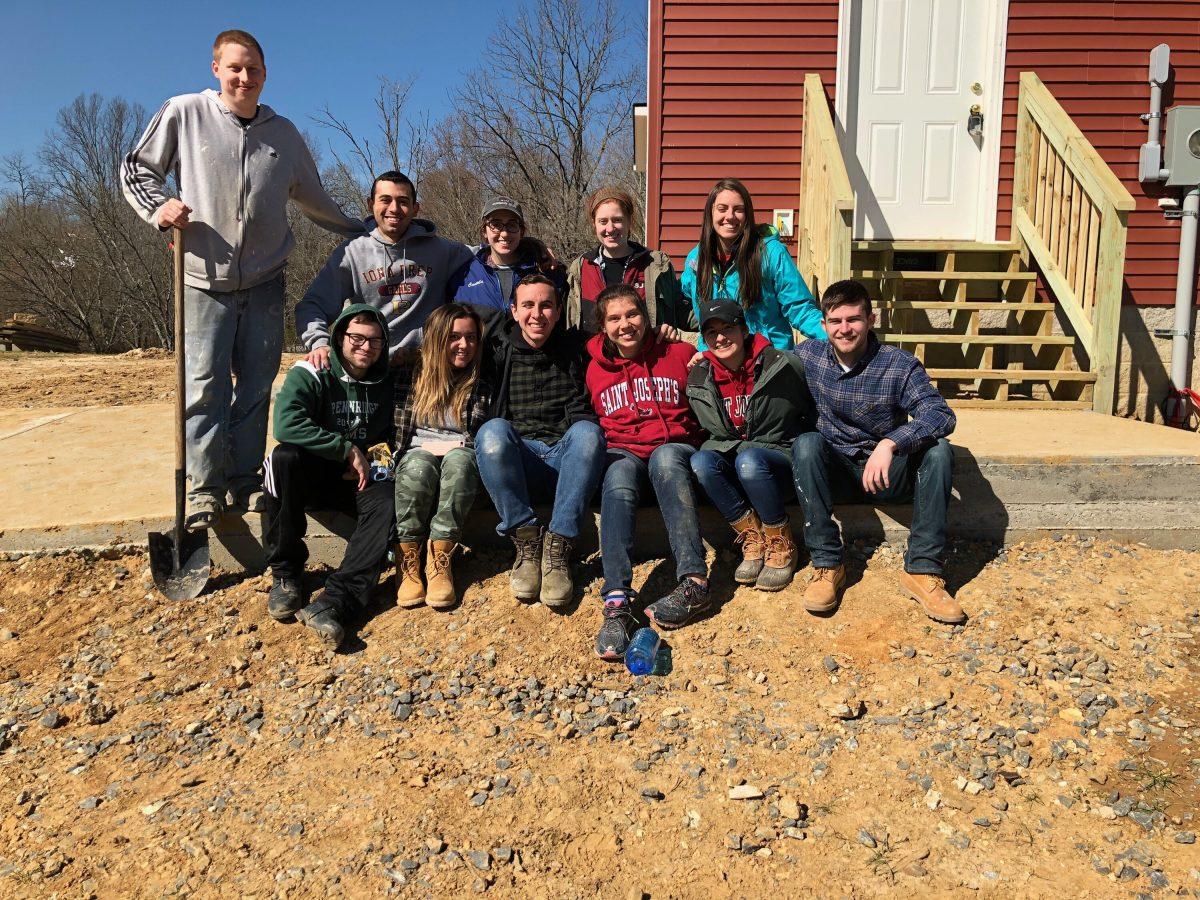Social media use on APEX service trips.
While documenting the highlights of a spring break trip may be a given, students participating in the annual Appalachian Experience (APEX) service trip were asked to stop and think before they did.
For the 500 students spending the week in North Carolina, Tennessee, Kentucky, Virginia, and West Virginia, part of their preparations included thinking about their social media use.
“While we do not have any written documentation of our social media policy, we do highly encourage our leaders, participants and adult facilitators to be respectful of the communities they are immersing themselves into,” said Brian Nessel ’18, an APEX student coordinator.
For Allie Millevoi ’18, who has gone on APEX three times, an awareness of the people being served is key.
“You know your limits when you’re around the people in their own environment,” Millevoi said. “The leaders warn us ahead of time to essentially ‘feel’ the people out when it comes to photographs of their homes, land, family, et cetera.”
Last November, the Norwegian Students’ and Academics’ International Assistance Fund and Barbie Savior, a parody account on Instagram, published an online social media guide dedicated to teaching young travelers and volunteers how to avoid exploiting others and perpetuating stereotypes. The guide, called “How to Communicate the World,” includes tips like getting consent before taking a photo, offering to give the subject a copy of the photo and carefully considering before posting on social media.
Matt Fullmer, program director of APEX at St. Joe’s, said students have always been respectful in their social media use while on APEX.
“The students are not going to tell a glorified story, or just post pictures of people who are impoverished,” Fulmer said. “It’s about building trust and a relationship with the community. They really get to know the community throughout the trip.”
Many students in APEX go on the trip multiple times, so they really build a relationship n a deep, personal level with the communities they are helping, Fulmer added.
Millevoi said while students are allowed to have their phones with them, many choose not to.
“It’s important to capture the moments on APEX, but it’s more important to be present in the moment,” Millevoi said.
Fullmer said the communities appreciate the St. Joe’s students.
“We’ve never heard anybody say that our students take too many pictures, and that they were overwhelmed by it,” Fullmer said. “We always hear that our students go above and beyond, and are very respectful, and that is awesome because I can’t really tell them how to act. It’s just the way they are.”
That’s been the experience of Eugen Ramos ’18 as well.
“The people of Appalachia are full of life and love, and that is reciprocated to the participants,” Ramos said. “It is a open and mutual relationship, so there is usually no problem with photos.”

















































